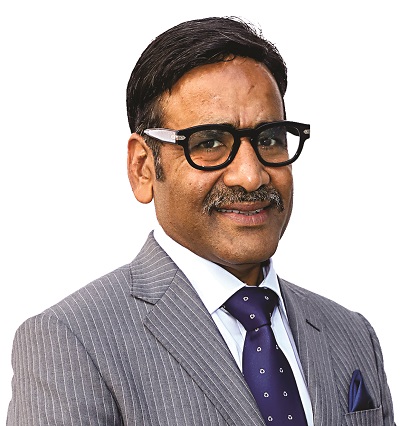India’s aluminium industry is undergoing a pivotal transformation. With national demand projected to rise from around 5.3 million tonnes today to nearly 8.3 million tonnes by 2030, both primary and secondary producers have crucial roles to play in meeting industrial and environmental goals. The secondary aluminium sector, founded on recycling domestic and imported scrap, now contributes nearly 40% of India’s total aluminium supply and has become a cornerstone of sustainable manufacturing, supported by roughly 20 percent domestic and 80 percent imported scrap inputs.
 |
Mr. Sanjay Mehta, President – MRAI
India still does not generate enough end-of-life aluminium scrap to meet rising demand for low-carbon metal. Until the domestic scrap pool matures, recycled aluminium sourced through imports remains indispensable for keeping the nation’s 2-million-tonne-plus recycling capacity fully utilised, sustaining competitiveness, and accelerating emissions reduction. A predictable scrap-supply regime strengthens – not threatens – domestic investment by ensuring material stability, rational pricing, and higher capacity utilisation.
“India’s secondary aluminium industry is driving the nation’s transition toward circularity, energy efficiency, and global sustainability leadership,” said a spokesperson for the MRAI. “Producing aluminium through recycling uses 95 percent less energy and emits over 90 percent less CO₂ than primary smelting—it’s like importing free electricity into the country.”
Recycling generates minimal waste compared with primary production and aligns with NITI Aayog’s Circular Economy Roadmap and Make in India 2.0. The industry empowers MSMEs, operates under BIS and radiation-check standards, and provides safe, high-quality raw material for downstream manufacturing.
By converting this scrap into high-value alloys and exporting them, India earns foreign-exchange surplus while advancing Net Zero 2070 targets. With global demand for green aluminium soaring – led by the EU’s low-carbon markets – India is positioned to become a reliable supplier of sustainable metal.
The sector also generates thousands of livelihoods across all skill levels and fosters women’s participation in sorting and quality operations, advancing inclusive and dignified employment in industrial clusters.
To sustain this momentum, MRAI urges a progressive and balanced policy framework that reinforces India’s recycling-led growth. Reducing import duty from 2.5% to 0% duty on aluminium scrap will ensure steady feedstock availability for recycling plants and uninterrupted production. A reduction of GST from 18% to 5% or 0% preferably will ease liquidity pressure, encourage formalisation, and enhance competitiveness across the value chain. Further, simplifying TDS on GST provisions will support MSMEs and small recyclers—enabling them to expand, invest, and create green employment at the grassroots level.
With stable and forward-looking policies, India’s secondary aluminium industry will continue to power sustainable growth, create green jobs, and strengthen India’s leadership in global circular manufacturing.
For more details and media queries: www.mrai.org.in.
#MRAI #SecondaryAluminium #CircularEconomyIndia #GreenGrowthIndia #RecyclingIndustry #SustainabilityIndia #LowCarbonAluminium #IMRC2026 #MakeInIndia #GreenJobs #NetZero2070



